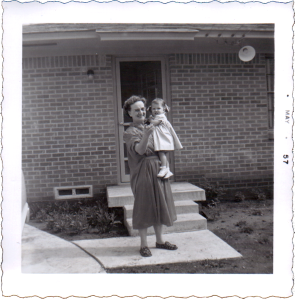Throwing Off Cloaks Of Unforgiveness
The writer of Hebrews, in chapter 12 vs. 1, exhorts us to “throw off anything that hinders and the sin that so easily entangles.” He then tells us that we are not alone in this race set before us– that Jesus went ahead of us enduring the pain and shame of the cross, and opposition from sinful men. What might God be asking us to “throw off”? On Palm Sunday, when Jesus rode into Jerusalem on the back of a donkey, the people “threw off” their cloaks on the ground. What might be our old, worn, sin-infested garments, that could be hindering us from running the race that He has specifically appointed for us? One common old garment or hindrance is an attitude of unforgiveness toward someone. It is difficult to “love your neighbor as yourself” (Matthew 22:29) when you have been hurt by someone that God is calling you to love. Without forgiveness, our love is incomplete.
So what exactly is forgiveness? Forgiveness is first accepting our own hurt and pain as valid. The very fact that we are in a position to forgive someone, means that we are in pain. If we invite the Lord to bear the pain with us, we will find that His comfort and love go very deep. He soothes the sharp sting-that acute, knife-like feeling that often accompanies a deep hurt. He bears it with us. We are not alone.
Secondly, forgiveness is acknowledging that we are all-even our enemies or those who have hurt us-equal in human worth and value before God. Likewise, we are all sinners. In John chapter eight, Jesus said to the onlookers who were ready to stone the woman caught in adultery: “Let the one who is without sin, cast the first stone.” The onlookers put their stones down and walked away.
Thirdly, forgiveness is canceling the debt that we have against someone who has wronged us. It is to say in our hearts-“You owe me nothing-not even an apology. Even in my thoughts, I will not harbor bitterness or resentment against you.”
What are the benefits to forgiveness?” Author Richard Dobbins states that forgiveness “frees us from our own overwhelming anger and hatred toward the offender.” Anger, hatred, obsessive thoughts about the offense, or calculating a plan to “get even” entangles us and hinders us. We are, on some level, re-traumatizing ourselves. Instead of running our God-appointed race with joy, we sentence ourselves to an emotional prison. This makes it hard to move forward with our lives.
Corrie Ten Boom, the Dutch Christian who hid Jews in her home in an effort to shield them from Hitler’s regime, was eventually imprisoned at Ravensbruck, a German concentration camp. She endured severe, inhuman abuse. Her sister, Betsie, had died at that very camp. After her release, she was speaking at a church in Munich. Afterward, one of her former captors came up to her and introduced himself as one of the guards at Ravensbruck. Since the war, he had become a Christian. He extended his hand to Corrie, and asked, “Will you forgive me?” Author Cynthia Heald, in her book, A Woman’s Journey to the Heart of God describes Corrie’s response:
And I stood there-I whose sins had every day to be forgiven-and could not. Betsie had died in that place-could he erase her slow terrible death simply for the asking? I wrestled with the most difficult thing I had ever had to do. I stood there with the coldness clutching my heart. But forgiveness is not an emotion-I knew that too. Forgiveness is an act of the will. “Jesus, help me!” I prayed silently. And so woodenly, mechanically, I thrust my hand into the one stretched out to me. And as I did, an incredible thing took place. The current started in my shoulder, raced down my arm, sprang into our joined hands. And then the healing warmth seemed to flood my whole being, bringing tears to my eyes.
After the people threw off their cloaks for Jesus on Palm Sunday, their hearts and actions were one of praise and worship: “Hosanna-Hosanna to the Son of David!” When Corrie threw off unforgiveness to her former captor, the Lord supplied her with the strength to accept his hand. When we throw off unforgiveness and trust Him to fill our pain, He will teach us how to love the ones who hurt us. The old “cloaks” of revenge, obsessive thoughts, and painful memories, will no longer have as great a power over us. Our lips too, can more easily shout “Hosanna!” as we move on in His calling on our lives.
Compliments of Practical Family Living, Inc.











